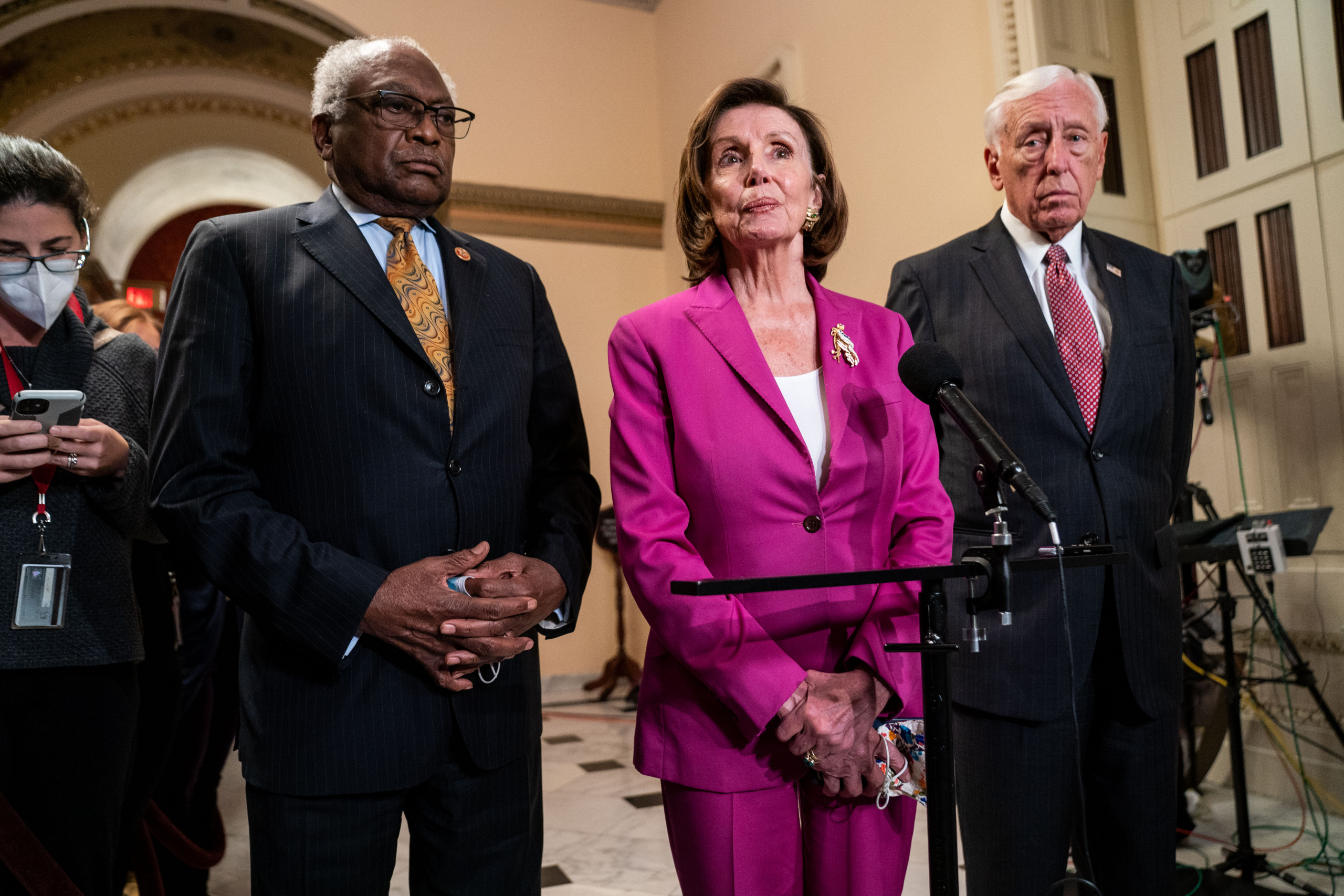Remember, remember the fifth of November – a day when the Democrat House civil war between moderate lawmakers and quixotic progressives came to a head. While the two infrastructure bills backed by the Biden administration were intended to go to a final vote in the lower chamber, stalling measures and disputes saw only one successful passage, while the other was left in a state of limbo. The smaller, $1.2 trillion bipartisan legislation finally made it through Congress, despite the reluctance of progressive members; it now awaits President Joe Biden’s signature. The larger Build Back Better proposal did not fare so well. After hours of wrangling, the House held a procedural vote, with moderates agreeing to vote on the progressive bill only once the Congressional Budget Office can verify the White House’s spending estimates.
The Democrats’ radical left-wing voted against the bipartisan package, refusing to back it if the larger bill wasn’t also on the table. However, with 13 GOP lawmakers crossing the aisle to support it, the smaller infrastructure bill passed in a vote of 228-206.
 Meanwhile, when it comes to Build Back Better, negotiation throughout the day resulted in a compromise of voting on a procedural rule governing the reconciliation process that means the larger “human infrastructure” bill will eventually receive a floor vote – expected to be held on November 15. Even if it manages to pass the House at that stage, the package will likely receive zero GOP support in the Senate, and maybe even a thumbs down from moderate Democrat Senators Joe Manchin (WV) and Kyrsten Sinema (AZ).
Meanwhile, when it comes to Build Back Better, negotiation throughout the day resulted in a compromise of voting on a procedural rule governing the reconciliation process that means the larger “human infrastructure” bill will eventually receive a floor vote – expected to be held on November 15. Even if it manages to pass the House at that stage, the package will likely receive zero GOP support in the Senate, and maybe even a thumbs down from moderate Democrat Senators Joe Manchin (WV) and Kyrsten Sinema (AZ).
That said, the U.S. government will now spend $40 billion on bridges, $5 billion on zero-emission buses, $55 billion on drinking water, $7.5 billion on electric vehicle chargers, $65 billion on broadband internet, and more. But how did Congress get to this point? It was quite a day in the nation’s capital.
War Games in Washington
After just ten months in office, the Build Back Better agenda, combined with the bipartisan law, was supposed to cement Joe Biden’s legislative legacy. However, the president’s spending spree has been hanging on by a thread. Intraparty politics failed to, as the Democrats aver, build the country back better. The White House confirmed that Biden spoke with House leaders and legislators, telling the party brass, “I’m asking every House member – member of the House of Representatives – to vote ‘yes’ on both these bills right now.”
Despite the president’s plea, progressives refused to support the bipartisan legislation unless the larger bill came to a vote at the same time – a wish that went unfulfilled. Rep. Pramila Jayapal (D-WA), the head of the Congressional Progressive Caucus, issued a statement demanding that the infrastructure legislation move in synch with the broader $1.75 trillion social benefits and climate change bill. “As we’ve consistently said, there are dozens of our members who want to vote both bills — the Build Back Better Act and the Infrastructure Investment and Jobs Act — out of the House together,” she stated. Rep. Jayapal suggested that progressives had the votes to shut down the smaller infrastructure bill if it went up for a vote alone – a statement that proved false as 13 Republicans voted ‘yea’ on the legislation.
While leftist Dems were unhappy with the bipartisan bill, it was the moderates who stalled on Build Back Better. Holdouts such as Rep. Josh Gottheimer (D-NJ) and Rep. Jared Golden (D-ME) requested further research be performed on the affordability of the progressive wishlist, asking for the Congressional Budget Office (CBO) to offer its rating on the administration’s spending bills.
Many Democrats cited the need for the final verdict from the CBO and the Joint Committee on Taxation (JCT), which would highlight the budgetary effects on the enormous spending package. These congressional officials requested “proper CBO/JCT scoring information” in a recent letter. A procedural vote confirmed the checks would go ahead.

(Kent Nishimura / Los Angeles Times via Getty Images)
Progressives and centrists have been engaged in tense negotiations in recent weeks over the size and scope of the bills. Political observers warn that negotiations will only intensify following the recent election results in Virginia, New Jersey, and elsewhere across the nation. Overall, according to multiple reports, there is frustration on every front as “the Blue Dogs keep moving the goal post.”
Did Virginia Break the Democrats?
Democrats currently enjoy razor-thin majorities in Congress, but the party is facing an onslaught of issues. First, the Republicans seem to be unified in their quest to act as a roadblock to enacting trillions of dollars in Democrat-led spending. Second, centrist Dems are frightened by the prospects of the 2022 midterm elections after what happened on Nov. 2 in Old Dominion and the Garden State.
The moderates may be following in the footsteps of Sen. Manchin who has become a lot more cautious about Build Back Better, noting that “we need to take our time and do it right.” On the other hand, others could be using these events as an opportunity to toss some measures in the bills that would appeal to a broader base, including adjustments to the state and local tax deduction provision.”
Whether Virginia was a wake-up call or not, is Build Back Better doomed? Manchin believes that the thrashing in Old Dominion was a message to pull back on the legacy spending; Biden suggests that it was a mandate to go full steam ahead. The internecine war being fought by Democrats may well be resolved by the time the congressional elections arrive in 2022, but the collateral damage along the way will leave the party in a much weaker position.
~ Read more from Andrew Moran.



